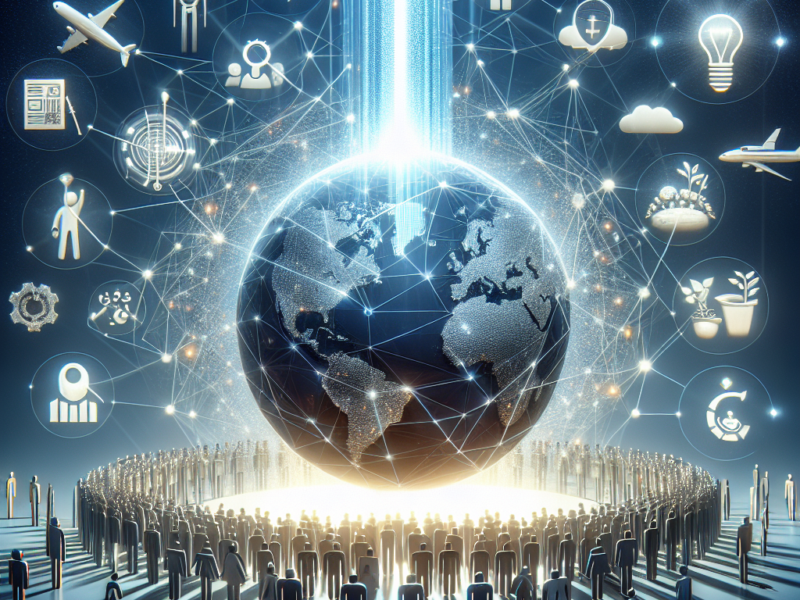In a world where technology evolves at breakneck speed, few innovations have made as significant an impact as artificial intelligence (AI). Since its inception, AI has transformed how we interact, work, and live, permeating various industries and reshaping societal norms on a global scale. From finance to healthcare, agriculture to education, the implications of AI extend far beyond automation; they herald a new era of efficiency, insight, and possibility.
The Rise of AI: A Historical Perspective
AI’s journey began in the 1950s, progressing through phases of optimism, disillusionment, and resurgence. With breakthroughs in machine learning, deep learning, and natural language processing, AI has gained unprecedented capabilities. Today, tools like ChatGPT, self-driving cars, and recommendation algorithms influence our everyday lives, making AI ubiquitous in our society.
Transforming Industries
1. Healthcare: Personalized Medicine and Predictive Analytics
AI is revolutionizing healthcare by helping practitioners diagnose diseases more accurately and develop personalized treatment plans. Algorithms analyze vast amounts of medical data, identifying patterns that may elude human observation. For instance, AI-driven systems can detect early signs of diseases like cancer through imaging technology, leading to timely interventions and better patient outcomes.
Moreover, predictive analytics enabled by AI can forecast disease outbreaks, optimize resource allocation, and facilitate preventative healthcare measures, thereby reshaping the healthcare landscape for both patients and providers.
2. Finance: Enhanced Decision-Making and Fraud Detection
In the financial sector, AI is streamlining operations and enhancing decision-making capabilities. Through algorithms that assess market trends and customer behaviors, financial institutions can predict trends and automate trade executions with remarkable accuracy. Robo-advisors, for example, provide tailored investment advice without the need for human intervention.
Additionally, AI plays a critical role in fraud detection and risk management. Machine learning models can analyze transaction patterns in real-time, flagging suspicious activities that could indicate fraud, thus protecting both consumers and financial institutions.
3. Manufacturing: Smart Automation and Supply Chain Optimization
Manufacturers are leveraging AI to create smart factories that enhance productivity and efficiency. Automation powered by AI technologies allows for real-time monitoring of equipment, predictive maintenance, and adaptive production processes, reducing downtime and operational costs.
AI’s capabilities extend to supply chain management as well, where it optimizes inventory, forecasts demand, and improves logistics by analyzing data from various sources. This results in quicker responses to market changes and a more resilient supply chain.
4. Agriculture: Precision Farming and Sustainable Practices
The agricultural sector is experiencing a renaissance thanks to AI-driven technologies. Precision farming employs AI to analyze soil conditions, weather patterns, and crop health, enabling farmers to make informed decisions that enhance yield while minimizing waste and resource use. Drones equipped with AI can monitor large tracts of land, providing real-time data that helps in pest control and irrigation management.
By harnessing AI, agricultural practices are becoming more sustainable, addressing the dual challenges of growing populations and climate change through smart resource management.
5. Retail: Enhanced Customer Experience and Inventory Management
In retail, AI is enabling personalized shopping experiences and optimizing inventory management. By analyzing consumer behavior, AI algorithms recommend products tailored to individual preferences, improving customer satisfaction and driving sales.
AI-powered chatbots provide instant customer support, resolving inquiries efficiently and freeing human agents to handle more complex issues. Additionally, inventory management has been transformed by AI technologies that predict demand trends, ensuring that retailers can meet consumer needs without overstocking.
Impact on Society
The influence of AI extends far beyond industry-specific applications. As AI reshapes labor markets, societal structures, and even cultural norms, it incites ongoing discussions about ethics, privacy, and equity. The automation of jobs presents challenges, with certain sectors facing displacement and workers requiring reskilling to remain relevant in an AI-driven economy.
Furthermore, as AI systems are predominantly designed and implemented by a limited group of tech giants, concerns arise about algorithmic bias, data privacy, and the potential for surveillance. The call for ethical AI—ensuring transparency, accountability, and inclusivity—grows louder in response to these issues.
Conclusion
AI is not just a technological advancement; it is a paradigm shift that is reshaping industries and societies around the globe. With its potential to drive efficiency, create new business models, and solve complex problems, AI stands as a cornerstone of innovation in the 21st century. However, as we navigate the challenges and risks associated with its proliferation, it is essential to foster a collective dialogue focused on ethical principles and equitable access, ensuring that the benefits of AI are shared widely. The path forward calls for collaboration between governments, businesses, and communities to harness AI responsibly and sustainably, ultimately contributing to a more prosperous and inclusive future for all.











